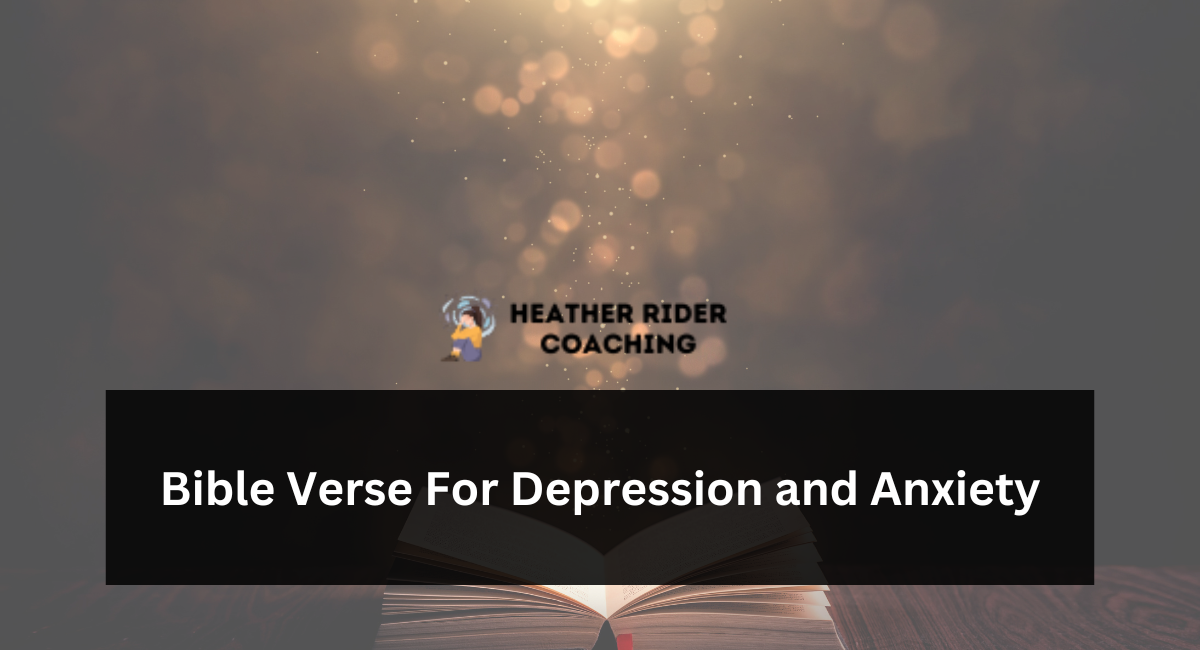Feeling anxious can sap us of joy, but there are ways to overcome this feeling.
Many religious traditions recognize the intrinsic worth and dignity of all individuals, including those suffering from mental illness. Therefore, seeking professional medical help and spiritual support through prayer or scripture reading may be appropriate to maximize recovery.
Psalm 23:1
The 23rd Psalm from the Book of Psalms is known as the Lord’s Sheep psalm, or in Latin Dominus regit me (“The Lord Is My Shepherd”) and depicts God as a shepherd guiding and tending his flock by using rod and staff – an image which Christians associate with Jesus who was known as “The Good Shepherd.”
Psalm 139:16
Depression often stems from our desire to hide from God, yet this Psalm serves as a powerful reminder that no matter where or what we do, He knows all about us and knows exactly where we stand in life.
God can bring clarity and peace even during difficult and confusing times. He’s there with you as your ally on a path toward righteousness.
Psalm 139:23
When feeling overwhelmed, it can be helpful to remember that God is with us. This Bible verse is a gentle reminder that he knows and cares deeply about your fears.
Depression can feel isolating, yet these Bible verses about depression offer comforting assurance that we’re never truly alone, no matter the difficulty or darkness of the moment. God stands with us through every trial.
Psalm 145:3
Psalm 145 is an acrostic psalm in which each verse begins with a consecutive letter from the Hebrew alphabet. In particular, this Psalm highlights God’s greatness, goodness, grace, and glory – four key themes.
God is great; praise should reflect this fact. Using the word “kingdom,” the praise begins and concludes together. God also deals fairly with mankind when needed assistance comes our way.
Psalm 145:4
Psalm 145 stands as one of the crowning achievements of Psalter. A beautiful alphabetical acrostic, each verse begins with one letter of the Hebrew alphabet except, according to Masoretic Text, nun (see John Gill’s Exposition of the Whole Bible for further discussion).
David provides four reasons to praise God: His essential goodness towards humanity and generous kindness toward those who depend on Him.
Psalm 145:5
This Psalm in “g major” praises God’s goodness, grace, and generosity towards humanity. Furthermore, it extolls His majesty and glory.
This Psalm is an alphabetic acrostic, beginning each verse with the next letter in the Hebrew alphabet. However, the Masoretic Text omits verse 13, where this approach occurs – something not uncommon among alphabetic acrostic Psalms.
Psalm 145:6
Contrasting with didactic, penitential, and supplicatory Psalms, this hymn of praise celebrates God’s wondrous works with praise: the Hebrew term for “wonderful” here is pala’, meaning magnificent or extraordinary (Victor P. Hamilton of TWOT).
When anxiety or depression overwhelms you, this Bible verse serves as a powerful reminder that God is always nearby to offer assistance and comfort – like an understanding and loving father waiting to pull you out.
Psalm 145:7
David pledges his everlasting praise of God because His kingdom is timeless. When feeling alone or suffering, this verse serves as a reminder that the Almighty’s strength, support, glory, and companionship provide comfort in times of difficulty.
God offers an abundant life full of His goodness that can never be exhausted. Those who fear Him and revere Him enjoy an unparalleled journey. His treasures of grace will never run dry!
Psalm 145:8
When depression weighs you down, this verse reminds you that Jesus is there with you, walking alongside you and leading on an honorable path forward.
Nothing can separate us from God’s love; He holds you tightly and fights on our behalf, understanding how you feel even when others don’t. Check out more bible scriptures for depression here.
Psalm 145:9
David wrote the 145th Psalm as one of his final contributions to God’s praise and worship, featuring an alphabetic acrostic to promote memorization and repetition.
According to the Masoretic Text, this Psalm lacks a verse beginning with a nun (n), which would normally fall between verses 13 and 14. This omission likely stems from an early copyist’s error; nonetheless, this Psalm celebrates God’s greatness.
Conclusion:
In moments of depression and anxiety, the Bible provides a source of comfort and resilience. Its timeless verses offer solace, reminding us of the enduring hope and strength that faith can bring. Turning to these sacred words can give a sense of peace and assurance, guiding individuals through challenging times and inspiring a renewed sense of purpose.
